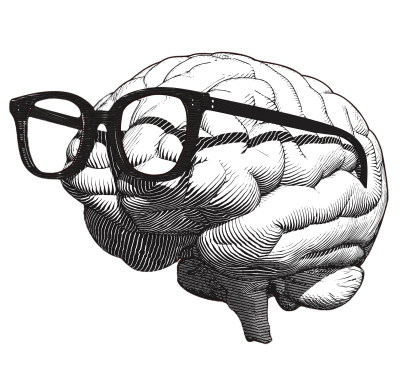Instagram Scrolling: Easy But Dangerous For Your Mind
Instagram is one of the world’s most popular social media platforms. Users open the app countless times a day, swiping through photos, stories, and reels. This simple scrolling habit might feel harmless. Yet, psychologists and neuroscientists are starting to uncover hidden costs. Instagram can affect how your brain works, shape your emotional wellbeing, and even influence what you believe about yourself and the world. By understanding these subtle changes, you can make healthier choices about how you spend your online time.
How Instagram Alters Brain Activity
fMRI Studies Uncover the Brain’s Response
Researchers often use functional Magnetic Resonance Imaging (fMRI) to see which areas of the brain become active during certain tasks. When participants view Instagram images, different parts of their brains “light up.” The reward centres, particularly those linked to dopamine release, show more activity. Dopamine is a chemical messenger that makes us feel good when we encounter something pleasing, like a funny meme or a beautiful photo.
Instant Gratification and Attention Control
The flood of images on Instagram creates a quick hit of visual stimulation. The brain’s reward system grows used to this constant stream of novelty. Over time, this may reduce patience for more demanding tasks. Activities that require effort, like reading a long article or studying, can feel less appealing. Some studies suggest that frequent Instagram use might even make it harder to focus when not using the app.
Emotional and Social Cues in Images
Scrolling through photos of smiling friends, beautiful places, or fancy meals can also engage areas of the brain involved in empathy, emotion, and social comparison. The more we look, the more we might compare our own lives to others, leading to heightened emotional responses. Brain scans show that even brief exposure to social media images can trigger anxiety or feelings of isolation if we feel we do not measure up.
Instagram Use and Mental Health:
Anxiety and Low Mood
Heavy Instagram use is linked to anxiety and depression in many people. Some experts believe this happens because the platform encourages unrealistic expectations. You see only the best moments of other people’s lives, not their struggles. This can lead to negative self-comparisons. The more we compare, the more we risk feeling unhappy.
Body Image Issues and Self-Esteem
Instagram is full of flawless images and edited selfies. Even if we know these photos are filtered, our brains still react as if these perfect images are normal. Repeated exposure to idealised bodies, luxury goods, and perfect lifestyles can lower self-esteem. Research shows that many users, especially teenagers, feel worse about their appearance after browsing social media.
Sleep and Overall Wellbeing
Late-night scrolling is another problem. Blue light from screens can disrupt our natural sleep patterns. Poor sleep affects mood, energy levels, and concentration the next day. Combined with the emotional toll, Instagram scrolling can create a vicious cycle. Users feel tired, anxious, and stressed, then return to the platform for comfort. This loop can harm both mental and physical health.
The Hidden Influence of Instagram's Algorithms
What the Algorithm Knows
The Instagram algorithm decides which posts you see first. It collects data on what you like, comment on, and share. Over time, it learns about your interests and adapts. The goal is to keep you engaged as long as possible. More engagement means more advertisements and more profit. The algorithm, designed to meet business goals, may not care about your mental health.
Creating Echo Chambers
If you like certain types of content, Instagram shows you more of the same. This creates a “filter bubble,” a narrow slice of the world that reflects your existing preferences. You see less diversity of opinions, cultures, and lifestyles. This can reinforce biases and limit opportunities for learning. Echo chambers can affect how we form opinions and beliefs, making our worldview less balanced over time.
Promoting Unrealistic Content
The algorithm often favours posts that get strong reactions, such as extreme beauty standards or luxury lifestyles. Over time, this skews what we think is “normal.” We might come to believe that everyone is always happy, beautiful, and successful. This hidden shaping of reality can fuel envy, dissatisfaction, and even reckless spending as we try to keep up with unrealistic standards.
Conclusion
Instagram’s endless feed feels like a simple way to pass the time. But beneath the surface, it may be reshaping how your brain works, how you feel about yourself, and how you see the world. Studies using fMRI have linked Instagram browsing to changes in attention, reward processing, and emotional reactions. Long-term use can contribute to anxiety, depression, and poor self-esteem. The platform’s algorithm encourages narrow perspectives and often promotes unrealistic expectations.
This does not mean you must delete Instagram entirely. Instead, think about how you use it. Set time limits, follow accounts that inspire rather than discourage, and remember that a single platform never shows the full picture of reality. Prioritise real-world connections and activities that enrich your life. By taking back control, you can enjoy the benefits of social media without letting it harm your wellbeing. For more insights and practical tips on protecting your mental health from the downsides of Instagram, I invite you to watch my video.
Thanks for reading and please comment on YouTube with any questions! Click here to see the other blogs and associated videos I have about neuroscience! 🙂
If you want to support this evidence based neuro-explainer content then feel free to buy me a coffee or become a patreon! 😊
References
Insta neural response: https://pubmed.ncbi.nlm.nih.gov/27247125/
Brain structure changes: https://pubmed.ncbi.nlm.nih.gov/37239257/
Insta and wellbeing: https://pubmed.ncbi.nlm.nih.gov/36449721/






